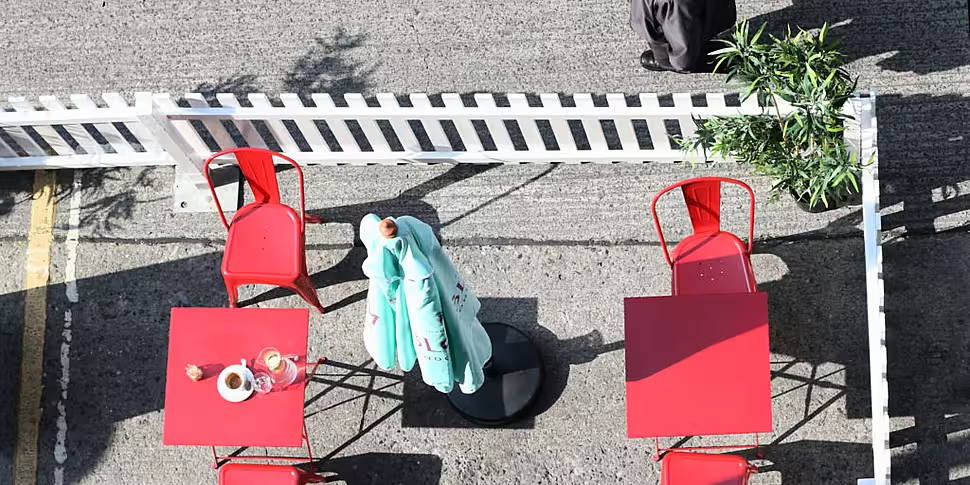A member of the National Public Health Emergency Team (NPHET) says the group decided to put Dublin at 'the end edges' of level three COVID-19 restrictions.
People in the capital are waking up to tighter restrictions to try to stop the spread of the coronavirus.
The capital will be at level three for a period of three weeks, until Friday October 9th.
The situation will then be 'reviewed' on that date. The rest of the country remains at level two.
Dr Kevin Kelleher is the HSE's asistant national director for public health and a member of NPHET.
He told Newstalk Breakfast: "It's always going to happen in a household if somebody comes in with a case, that's an absolute inevitability almost that there will be some transmission.
"But what is more important is trying to make sure that there aren't people coming back into the house with the disease from outside.
"And that's what we're trying to break, we're trying to break that, that there is less and less of the disease in the community".
"This discussion was quite wide-ranging, but clearly we came down with the decision we came down with at the time: that we should move Dublin to level three, and that there are certain circumstances we should go to the end edges of what level three permitted".
Dr Kelleher explained: "The main issue... is we have to reduce the amount of social interaction in Ireland generally, Dublin more specifically at the moment, to try and reduce the acceleration of the disease and even hopefully to bring it back down.
"It is vital for us: we are out there trying to maintain certain aspects of our society - particularly education, certain industries, key industries into the system."
"We're trying to maintain and protect our older people who have been most vulnerable to this in the past, so that's what we're seeking to do.
"At the moment as [Acting CMO Dr Ronan Glynn] said, the disease seems to be spreading quite easily in the country - even more so in Dublin.
"So we're trying to reduce social interaction, we're trying to get people to be less out and about, so that we can try and put a barrier around this disease".
As part of the changes for Dublin, restaurants and cafés - including bars serving food - can open for take-away, delivery and outdoor dining to a maximum of 15 people.
So-called 'wet pubs' remain closed.
Under the restrictions, a maximum of six people from one other household can visit people's homes.
Outdoor events, in a controlled environment with a named event organiser, can take place with up to 15 people.
While no organised indoor gatherings should ne held.
People are being told to work from home "unless absolutely necessary" and those in Dublin should stay within the county apart from work, education and other essential purposes.
Public transport in the capital is also to be limited to 50% of capacity for "essential workers and essential purposes only", the Government says.
The area of Blanchardstown and Mulhuddart in Dublin has the highest rate of COVID-19 in the country.
The incidence nationally is just over 50 cases per 100,000 people.
New figures show the rate is 189 in Blanchardstown-Mulhuddart, 175 in Tallaght, 163 in the south-west inner city and 150 in Balbriggan.
Main image: A pedestrian passing empty tables at an outdoor dining area in Dublin city centre. Picture by: Sasko Lazarov/Rollingnews.ie









